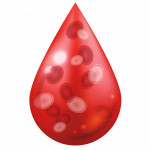HIV-positive people with an inherited mutation in a specific gene are far more likely to respond to hepatitis C virus (HCV) therapy than people without the mutation, according to a study published online August 30 in the journal Clinical Infectious Diseases. Testing for the gene could help identify those most—and least—likely to benefit from HCV treatment.
Current HCV therapy—pegylated interferon plus ribavirin—can cure HCV in some people, though cure rates are quite low in people with HIV who are also infected with the HCV strain most common in the United States: genotype 1. More potent therapies are on the near horizon, but it will likely take at least another couple of years before we know how well they work in people coinfected with both HIV and HCV. In the meantime, people must often decide whether they are willing to complete 12 months of treatment, which can have debilitating side effects and is not guaranteed to achieve a sustained virologic response (SVR).
If it were easier to predict who would, and would not, benefit from HCV treatment, it would likely increase people’s willingness to try therapy. Given that successful HCV treatment can significantly diminish a person’s risk of dying from liver disease—the leading cause of death among people coinfected with both HIV and HCV—such a predictive test would be most welcome.
Researchers have found that people who inherit a mutated, or altered, gene that makes interleukin-28B (IL-28B)—an immune signaling protein—are about twice as likely to achieve an sustained virological response (SVR), or cure, as people who don’t have those changes. Unfortunately, we don’t yet know whether changes—called polymorphisms—to this gene are as good of a predictor of an SVR in people coinfected with both HIV and HCV, as they are in people infected with HCV alone.
To answer that question, Juan Pineda, MD, from the Hospital Universitario de Valme, in Sevilla, Spain, and his colleagues, looked for the IL-28B polymorphism in 154 HIV-positive people who underwent standard HCV treatment. About two thirds of the study participants had the hard-to-treatment strains of HCV—genotypes 1 or 4—and one third had the easier-to-treat strains—genotypes 2 or 3. In keeping with other studies of HCV treatment in coinfected people, roughly 30 percent of those with genotypes 1 or 4 achieved an SVR, compared with 76 percent of those with genotypes 2 or 3.
When Pineda and his colleagues looked at the participants’ genes, they found that those carrying the IL-28B polymorphism were far more likely to achieve an HCV cure than those who didn’t have the polymorphism. Among those with HCV genotypes 1 or 4, the cure-rate was 54 percent in those with the IL-28B polymorphism, compared with just 19 percent in those without the polymorphism.
The authors confirm that the IL-28B polymorphism is as effective in predicting the likelihood of HCV treatment success in people coinfected with HIV as it is in people infected with HCV alone. “The use of this genotype in routine clinical practice may select patients with very high or very low likelihood of therapy success,” they concluded. “Determinations of the [IL-28B test] should be incorporated into daily clinical care soon.”
Advertisement
Advertisement
Advertisement






Comments
Comments